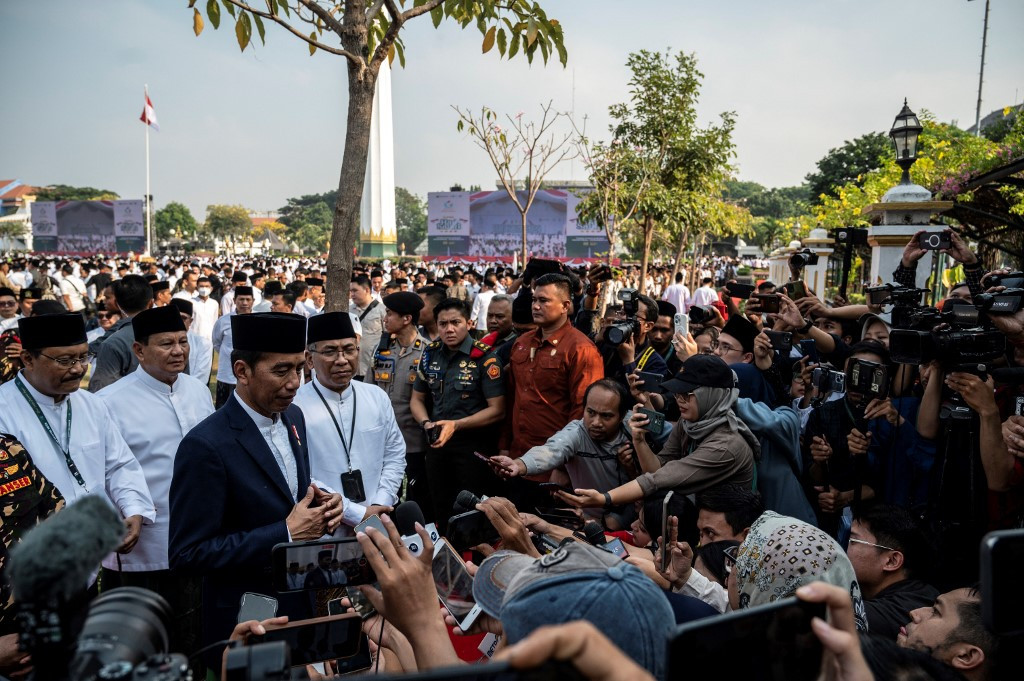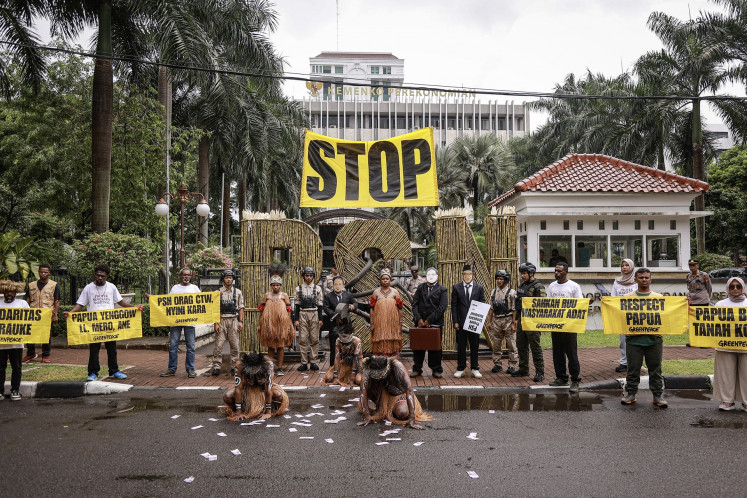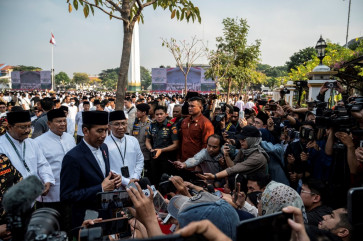Popular Reads
Top Results
Can't find what you're looking for?
View all search resultsPopular Reads
Top Results
Can't find what you're looking for?
View all search resultsJokowi’s dangerous gamble with mining licenses: A recipe for disaster
The regulation on mining licenses for religious groups challenges Indonesia's traditional separation of religious influence from state affairs by enabling a religious organization to engage directly in mining.
Change text size
Gift Premium Articles
to Anyone
O
utgoing President Joko “Jokowi” Widodo has initiated a controversial new policy of granting mining licenses to religious organizations, and Investment Minister and Investment Coordinating Board (BKPM) head Bahlil Lahadalia has specifically highlighted Nahdlatul Ulama (NU) as most likely the first beneficiary.
This move is formalized in Government Regulation (PP) No. 25/2024, signed on May 30, which revises existing regulations to allow religious groups to have considerable control over mining operations. Analysts believe this policy is a tactical redistribution of power, especially following the electoral victory of Prabowo Subianto and his running mate Gibran Rakabuming Raka, who is Jokowi’s eldest son. The pair are perceived to have strong support from NU, the country’s largest Muslim organization.
Yuliot, the deputy to the investment minister for investment implementation control, has confirmed that the NU central board was the first religious entity to have applied for a Special Mining Business License Area (WIUPK). Additionally, a March 2024 report by Tempo magazine revealed that NU would likely get over 20,000 hectares of the 84,938-ha concession owned by PT Kaltim Prima Coal, a coal mine linked to businessman-turned-politician Aburizal Bakrie, a former Golkar chairman.
NU is transitioning from a foundation to a corporate structure, planning to manage its mining operations through a newly established limited liability company (PT). Yahya Cholil Staquf, the NU chairman, has said Gudfan Arif Ghofur, a mining entrepreneur and the acting treasurer of NU, will lead this new mining entity.
The policy’s implications are extensive and complex, posing significant risks to Indonesia’s sociopolitical landscape. The regulation challenges Indonesia's traditional separation of religious influence from state affairs by enabling a religious organization to engage directly in mining.
The mining sector, fraught with environmental and ethical challenges, such as land degradation, deforestation, corruption and displacement of local communities, now faces additional scrutiny. NU’s involvement is particularly controversial because of its apparent lack of experience in sustainable mining practices, raising fears of environmental mismanagement. Any missteps could severely damage NU’s reputation and undermine its moral and ethical standing in the community.
From an economic standpoint, while certain segments within NU may benefit financially, the overall impact on local communities and the broader national economy is less positive. The mining industry is notorious for its boom-and-bust cycles, and its profits are often concentrated in the hands of a few, potentially exacerbating inequality and social tensions. By embedding these economic activities within a religious organization, the government risks creating pockets of wealth disconnected from broader community welfare, potentially exacerbating inequality and social tension.



















